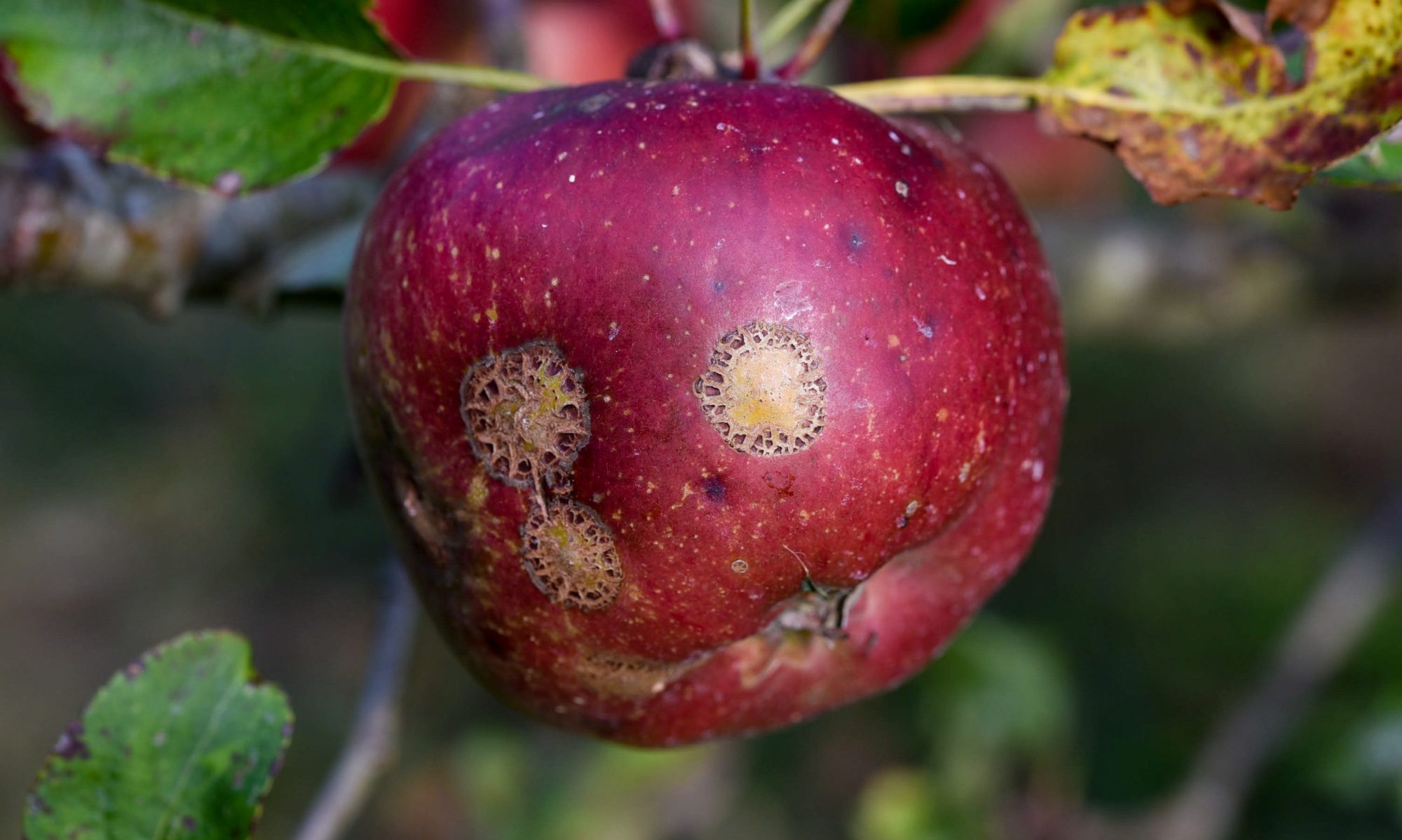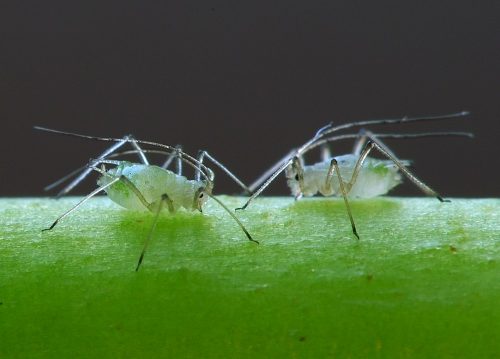Aphids are small, herbivorous insects. There are green, white, black, yellow, red and purple aphids. A special category are the Scale insects.
Aphids (Aphidoidea). Small, herbivorous insects up to a maximum of 5 mm. Mainly damage the young leaves.
The damage caused by aphids consists of weakening the plant: plant sap necessary for growth are sucked away by the aphids. This causes deformations of the leaf (bumps, curls).
The plant sap contains more sugars than the aphids can absorb; the excess is excreted in the form of honeydew. Ants, bees and wasps love it. A fungus develops on honeydew: sooty mold. Aphids also transmit plant viruses.
Where to find
Aphids can occur on almost all green parts of plants, shrubs and trees. The plants below are extra sensitive to it.
- Runner beans – black bean aphid (Aphis fabae)
- Tomato
- Rose
- Leafy vegetables (lettuce, spinach)
- Mock-orange
Control
Control with pyrethrum, Insecticidal soap, soapy water spray, rhubarb spray or nettle spray.
Rapeseed oil is also an effective pesticide, but it is not selective, so beneficial insects (bees, bumblebees, ladyb
Control aphids with ladybirds or the larvae of ladyb
Scale insects are not easy to remove.
Prevention
Natural enemies include: birds, ladybird, earwigs, parasitoid wasps and lacewings. Nasturtium (trap crop) captures

